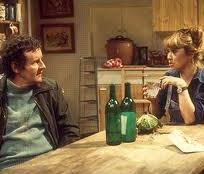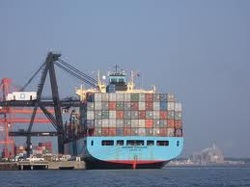
They plan to choose an older couple whose relationship would be able to withstand the stress of living in a confined environment for two years. During the selection process, they will look for a resilient couple that would be able to maintain a happy upbeat attitude in the face of adversity. Even carefully screened individuals are likely to suffer from psychological problems from a prolonged space mission. People find long periods of isolation very challenging. In theory, living close to someone you truly cared for would help.

I don't know about you, but wouldn't look forward to being cramped up with my loved-one for two years without enough room to even wear a space-suit, recycling pee and eating dried food. No matter how close, any married couple has their disagreements. My husband and I are generally harmonious, but a small thing can set off a bomb which will drive us apart until we work through the problem. All pleasure would be gone from life—eating, entertainment and a stroll in the park to contact nature.
Anyone for a cramped trip into space for two years?



















 RSS Feed
RSS Feed






